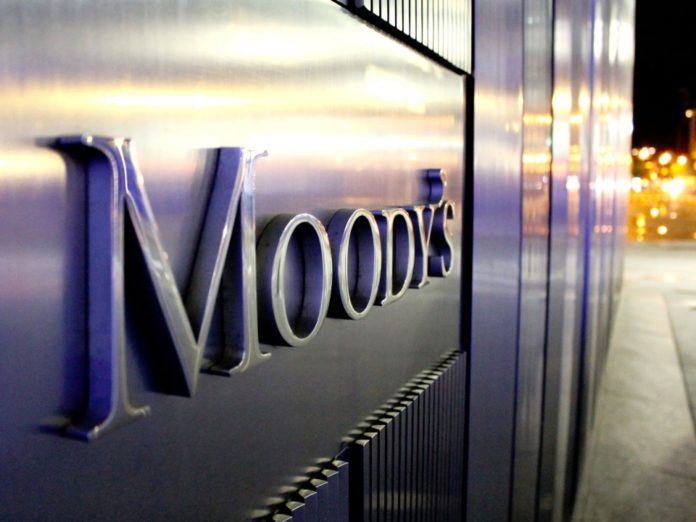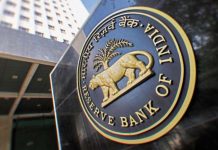
LAHORE: The rating’s agency Moody’s in its “2019 Global Emerging Market Outlook” report on Thursday said Pakistan’s reserves adequacy is among the lowest of rated sovereigns, covering less than two months of imports as of September 2018.
Moody’s stated the share of foreign currency debt is relatively low at approximately 35% of total government debt, declining foreign reserves because of a current account deficit of around 4%-5% of GDP raise repayment risks.
It projected the EVI to rise to 153% in 2018 and successful negotiations for a new IMF programme would decrease external financing risks for Pakistan.
As per a recent report released by Moody’s in October, it projected Pakistan’s gross external financing needs at around $30 billion for the fiscal year 2019, due to the widening current account deficit.
According to the rating agency, the current account deficit for FY19 would total 4.6% of GDP which would be slightly narrower than the 5.8 percent deficit clocked in FY18.
The rating agency highlighted foreign exchange reserves adequacy had fallen to a low level, barely enough to provide two months of goods imports and below the IMF’s minimum adequacy threshold of three months.
Regarding the financing gap which excludes foreign exchange reserves, Moody’s said it is likely to total $8-9 billion taking into consideration the government’s borrowing plans and their expectations for capital inflows which include portfolio and foreign direct investment (FDI) flows
According to the rating agency, slower global growth, rising interest rates, trade protectionism and geopolitical tensions would pose challenges for emerging markets next year.
It maintained a broadly stable outlook and incorporates the likely resilience of most emerging market issuers to these aforementioned challenges, due to a range of different buffers including strong balance sheets, domestic growth and supportive policy.
Still, credit stress could appear for issuers operating in countries with macroeconomic imbalances or increasing political risk, especially those heavily dependent on international financing.
Moody’s warned trade tensions to remain the biggest risk to Asia Pacific’s broadly stable outlook, with tightening global liquidity creating another risk.
In the Asia Pacific, most economies would continue growing solidly if at a slowing pace, said Moody’s.
Notwithstanding, the rising trade between the two biggest global economies, the US and China could impact growth and sentiment.
Furthermore, for financial institutions the tightening dollar liquidity and increasing interest rates creates some risks, said the rating agency.
“Structured finance transactions will continue to perform strongly in China, but some delinquency rates may rise in India.
For corporates and infrastructure and project finance issuers, our expectations for earnings stability or growth support our stable outlook. But we expect a more challenging year for a number of sectors,” said Moody’s.
In Europe, the Middle East and Africa, credit conditions are mixed fueled by fluctuations in growth, policy and external liquidity, said Moody’s.
According to Moody’s, its outlook for sovereigns and sub-sovereigns is negative for Turkey and parts of Africa, mixed for the Middle East and stable for Central and Eastern Europe.
It added, “For financial institutions, structured finance and corporates, the outlook is mostly stable, but we see risks for issuers in Turkey and South Africa.
Conditions are also stable for infrastructure and project finance issuers, but there are geopolitical and liquidity risks in some markets.”
However, it said greater policy certainty supports stable credit conditions in most of Latin America aside Argentina.
As per Moody’s, with elections now mostly over in many large countries in the region, policy direction is clearer, reducing the local political uncertainty that posed risks in 2018.
Besides Argentina, Moody’s said the biggest risk to Latin American credit conditions is the regions’ exposure to increasing interest rates, trade protectionism and other geopolitical events.






